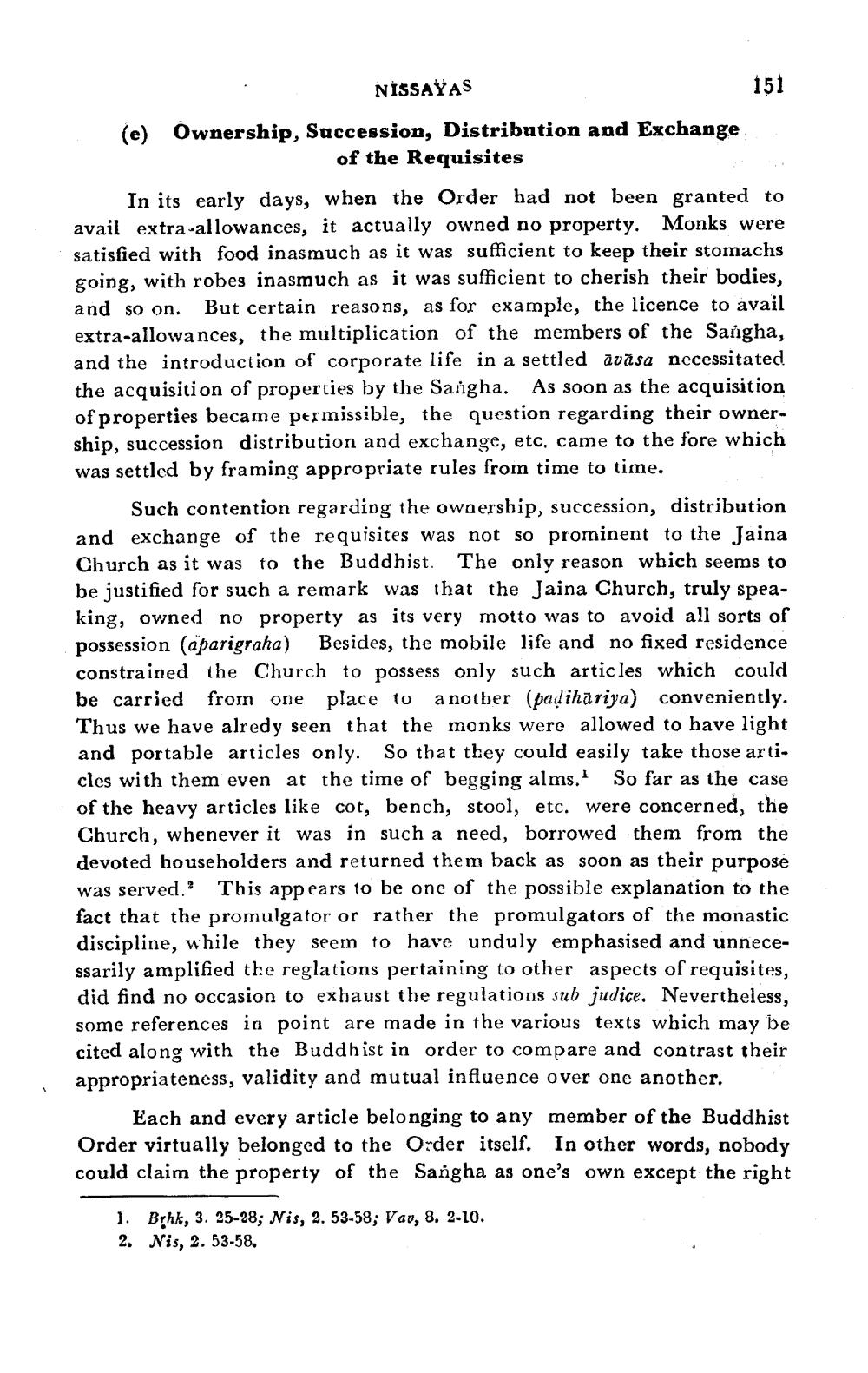________________
NISSAYAS
151
(e) Ownership, Succession, Distribution and Exchange
of the Requisites
In its early days, when the Order had not been granted to avail extra-allowances, it actually owned no property. Monks were satisfied with food inasmuch as it was sufficient to keep their stomachs going, with robes inasmuch as it was sufficient to cherish their bodies, and so on. But certain reasons, as for example, the licence to avail extra-allowances, the multiplication of the members of the Sangha, and the introduction of corporate life in a settled avāsa necessitated the acquisition of properties by the Sangha. As soon as the acquisition of properties became permissible, the question regarding their ownership, succession distribution and exchange, etc, came to the fore which was settled by framing appropriate rules from time to time.
Such contention regarding the ownership, succession, distribution and exchange of the requisites was not so prominent to the Jaina Church as it was to the Buddhist. The only reason which seems to be justified for such a remark was that the Jaina Church, truly speaking, owned no property as its very motto was to avoid all sorts of possession (äparigraha) Besides, the mobile life and no fixed residence constrained the Church to possess only such articles which could be carried from one place to another (padihariya) conveniently. Thus we have alredy seen that the monks were allowed to have light and portable articles only. So that they could easily take those articles with them even at the time of begging alms. So far as the case of the heavy articles like cot, bench, stool, etc. were concerned, the Church, whenever it was in such a need, borrowed them from the devoted householders and returned them back as soon as their purpose was served. This app ears to be one of the possible explanation to the fact that the promulgator or rather the promulgators of the monastic discipline, while they seem to have unduly emphasised and unnecessarily amplified the reglations pertaining to other aspects of requisites, did find no occasion to exhaust the regulations sub judice. Nevertheless, some references in point are made in the various texts which may be cited along with the Buddhist in order to compare and contrast their appropriateness, validity and mutual influence over one another.
Each and every article belonging to any member of the Buddhist Order virtually belonged to the Order itself. In other words, nobody could claim the property of the Sangha as one's own except the right
1. Brhk, 3. 25-28; Nis, 2. 53-58; Vav, 8. 2-10. 2. Nis, 2. 53-58.




